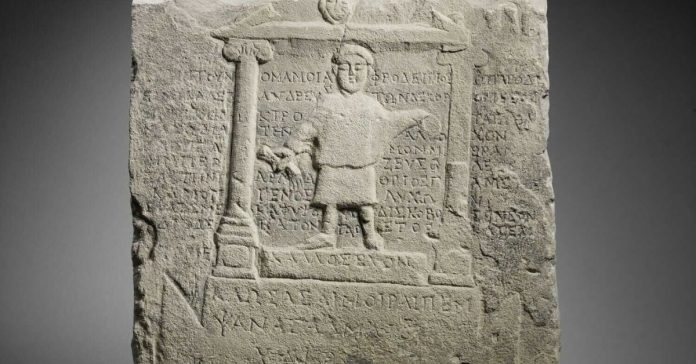Imagine walking through an ancient city and stumbling upon a tombstone that reads like the script of a dramatic soap opera. That’s exactly what happened in Alexandria Troas, a Roman city in present-day Türkiye, where a 1,800-year-old epitaph was discovered, exposing a shocking tale of betrayal, adultery, and murder.
The inscription belongs to Aphrodisios, a young chorus leader who met a tragic end at just 20 years old. In his own words, carved in stone for eternity, he bitterly recounts his fate:
“Passer-by, my name is Aphrodisios; I am a citizen of Alexandria Troas and a leader of the chorus. I died a most pathetic death because of my wife, the dirty adulteress (whom Zeus will destroy). Her secret lover Lychon—a member of my own family!—slaughtered me in my youth. He threw me from the heights like a discus. I was twenty years old, so full of beauty, when the Moirai (Fates) spun my destiny and sent me to Hades.”
This is not just an ordinary tombstone—it’s a desperate cry for justice from beyond the grave. Aphrodisios accuses his wife of infidelity and blames her secret lover, who was also his own relative, for his murder. He describes how he was thrown from a great height, comparing himself to a discus being hurled through the air, emphasizing the violent and humiliating nature of his death.
The fact that such a personal and damning message was inscribed on his tombstone suggests that Aphrodisios, or perhaps his family, wanted the world to know the truth—forever. Today, this haunting artifact is preserved in the Louvre Museum, offering a rare glimpse into the raw emotions and turbulent relationships of the ancient world.

